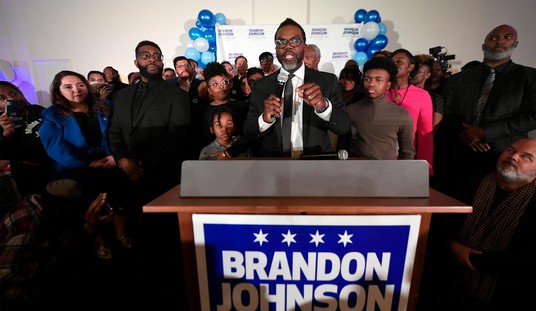It’s not too often that one sees a major newspaper attacking another in a different market. In today’s New York Times, though, media critic David Carr criticizes the management at the Washington Post in both the manner and substance of their change at the top of the editorial structure. In doing so, Carr uses anonymous sources to paint publisher Katharine Weymouth as incompetent and out of touch at a bad time for the industry:
It is an inopportune time for The Post to stumble. Ms. Weymouth’s move is akin to switching drivers just as the car is sputtering to a stop. Print, and more ominously, digital advertising revenue is in decline, circulation is in a dive and the newspaper’s “for and about Washington” editorial strategy has left employees underwhelmed. Now Ms. Weymouth seems to be upending the loyalty and accountability that has been a hallmark of her family’s ownership of the newspaper.
After the meeting, people returned to their desks wondering whether Ms. Weymouth was capable of leading the organization. In Mr. Baron, she may have selected a talented and independent editorial leader. But four years into her tenure at the top, she still seems to be struggling to get a grasp on a huge job at a company whose journalism has at times altered the course of a nation.
It is no coincidence that the vast majority of the most important newspapers in the country are controlled by families, not conglomerates, and that comes with advantages and drawbacks. While Ms. Weymouth got her job because of who she is, a Graham, people expect her to find a way to make it work, against tall odds, for the same reason.
That’s a pretty remarkable statement coming from the New York Times, even from a columnist. The NYT is itself a family-run business, whose publishers aren’t selected from a wide range of qualified candidates but instead a narrow DNA pool of Sulzbergers. This criticism may be apt, but perhaps Carr should look to the beam in the Gray Lady’s eye first before tending to the speck in the Post’s.
It’s not as if Carr doesn’t understand that the NYT has little standing to criticize management changes at other newspapers, either:
Fumbling an editorial change may seem like small beer when viewed against the backdrop of an industry in which bankruptcies are legion and rich business interests are buying newspapers as playthings. And it’s not as if The New York Times has been a model of seamless transitions in the executive suite — the departure of the previous chief executive, Janet Robinson, was not handled forthrightly, and her replacement, Mark Thompson, has come under scrutiny for serious problems he failed to notice in his previous job.
But with around 600 journalists, The Post is still an important player. It is not what it once was, but it isn’t nothing either. Ms. Weymouth’s continued misfires, along with the lack of success in generating new revenue, however, have left the newspaper staring down the gun barrel of deep cuts and a business model in free fall.
Note that Carr never mentions the fact of hereditary publishing at the Times. He also waters down the “scrutiny” being given to his own paper’s editorial change. Thompson ran the BBC, which under his management killed a story about one of the network’s stars and allegations that he had committed perhaps hundreds of acts of pedophilia and/or pederasty:
Thompson’s reputation has been called into question by the child-abuse scandal that has overtaken the BBC. Jimmy Savile, an enduring BBC personality who died last year, is suspected of widespread acts of pedophilia — and critics are also questioning whether the BBC helped cover up his acts. Some executives at the broadcaster have resigned. Read story at Wall Street Journal: BBC’s head of news steps aside.
After an exhaustive search to fill the spot vacated by Janet Robinson nearly a year ago, the Times announced in August that it had hired Thompson.
He was originally hailed as an executive who could boost the company’s fortunes in two key areas: digital expansion and worldwide growth. Lately, however, Thompson has been the subject of news stories and columns, such as the one on Oct. 29 by Times columnist Joe Nocera, which carried the headline: “The Right Man for the Job?” Nocera has essentially asked: What did Thompson know, and when did he know it? Read Nocera’s column at NYTimes.com.
Times critics are surely asking the media company the same question. And many will wonder whether the Times could have done more to vet the hiring of Thompson. If the scandal keeps growing, the Times may start getting questions as to whether Thompson can keep his job.
Perhaps the newsroom announcement for Thompson’s hiring was handled with more panache than Brauchli’s departure at the Post. But the newspaper that hired Thompson as their leader of the future as the bottom fell out of the BBC has little room to criticize leadership changes at other news organizations, and any ire at hereditary publishing from that organization should be aimed within and not without.







Join the conversation as a VIP Member